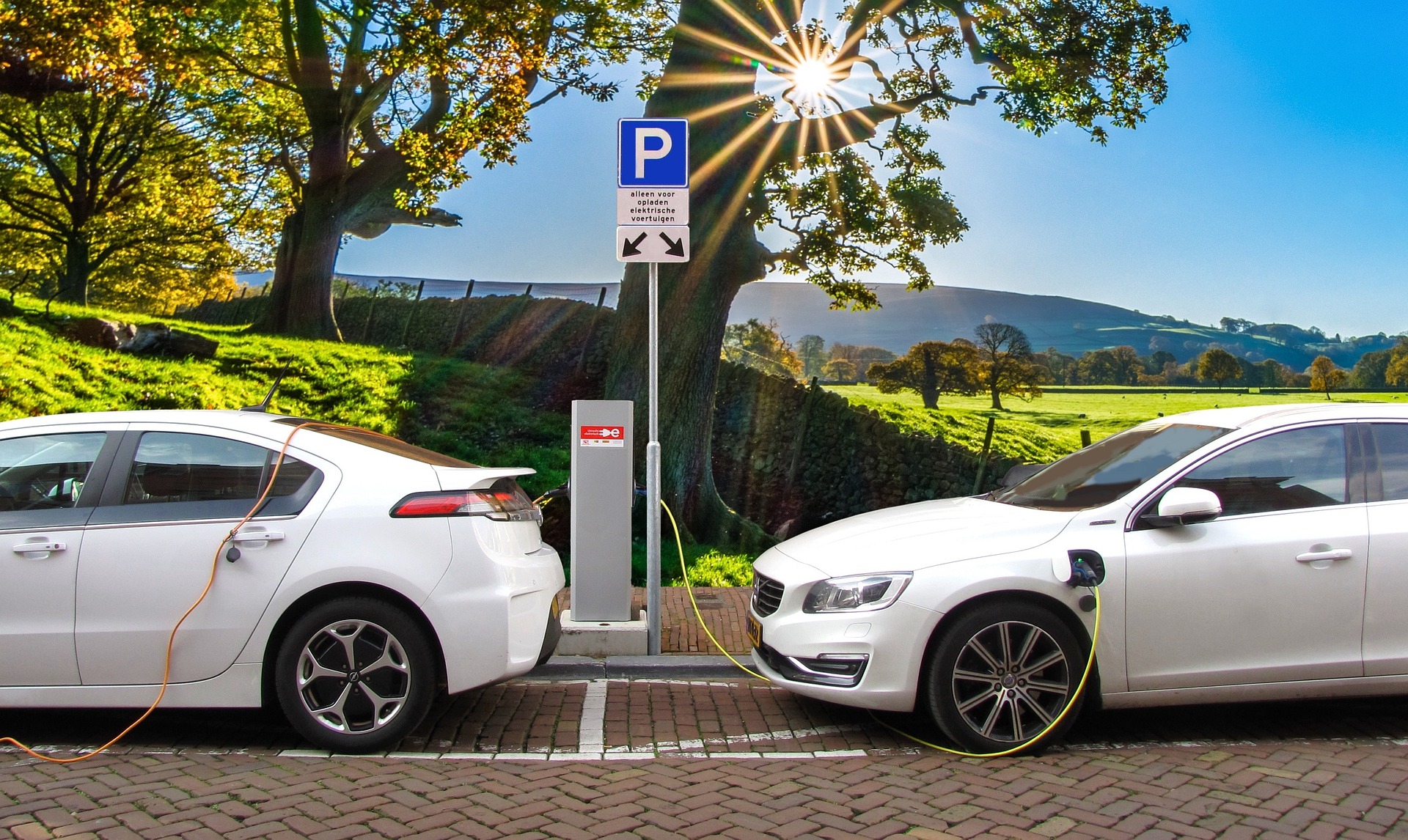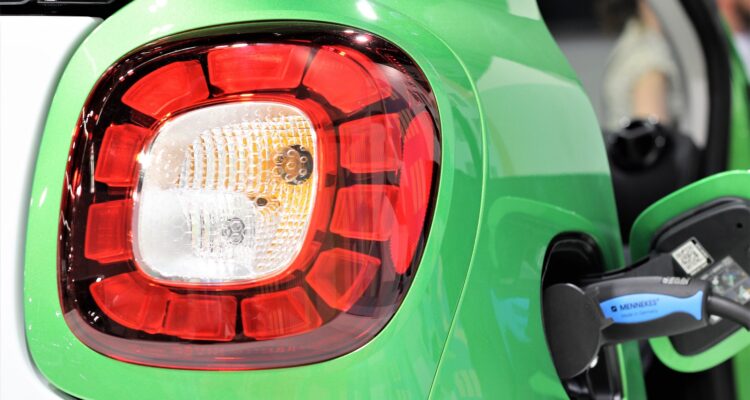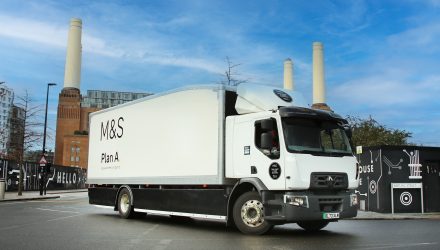The Government has set out the percentage of new zero emission cars manufacturers will be required to produce each year up to 2030, following the Prime Minister’s decision to delay the ban on new diesel and petrol cars from 2030 to 2035.
It is hoped that the path will support manufacturers and families in making the switch to electric.
The zero emission vehicle mandate unveiled today (28th September) means the country will have the most ambitious regulatory framework for the switch to electric vehicles (EVs) in the world. This requires 80% of new cars and 70% of new vans sold in Great Britain to be zero emission by 2030, increasing to 100% by 2035. The 2035 end of sale date puts the UK in line with other major global economies, including France, Germany, Sweden and Canada.
The move provides certainty for manufacturers and will help families make the switch to electric, by providing more time for the second-hand EV market to grow and charging to roll out more widely across the country. The plans provide investors with confidence to invest in charging infrastructure – with 43% more public chargepoints this year than last, putting the country well on track for the Government’s target of 300,000 charge points by 2030.
The mandate sets minimum annual targets, starting with a requirement for 22% of new cars sold in 2024 to be zero emission, as originally proposed. This will rise each year up to 100% by 2035, although some manufacturers already plan to reach 100% sooner.
The government claims it is making strong progress on its world-leading ambition to phase out new fossil fuel vehicles, despite it planning to issue more than 100 licences to extract oil and gas from the North Sea.
Latest industry figures show 20% of new cars sold in August were zero emission, and there are now 48,100 public chargepoints, in addition to the chargepoints installed in homes where most charging takes place.
Transport Secretary Mark Harper said: “The path to zero emission vehicles announced today makes sure the route to get there is proportionate, pragmatic, and realistic for families.
“Our mandate provides certainty for manufacturers, benefits drivers by providing more options, and helps grow the economy by creating skilled jobs.
“We are also making it easier than ever to own an electric vehicle, from reaching record levels of chargepoints to providing tax relief for EV owners.”
The Government has also introduced several schemes to lower the up front and running costs of owning an EV. This includes a plug-in van grant of up to £2,500 for small vans and £5,000 for large vans until at least 2025 and £350 off the cost of home place chargepoints for people living in flats. This is in addition to EVs being cheaper to run than petrol and diesel cars, with research showing that electric cars are around £150 cheaper to maintain a year.
Jakob Pfaudler, AA CEO, said: “Our customers want to see both Government action and realism in the move to electric vehicles as part of an ambitious drive to net zero. This means having certainty and a combination of the right information, infrastructure, and incentives available to them.
“Today’s announcement brings welcome clarity to help support investment in ZEVs and associated technologies and industries. Over time, and as part of a wider set of policies, it will help the UK’s motorists manage the transition and the AA will be working to give confidence to drivers during this period.”
The used car market also continues to grow, providing more affordable options for drivers. In the first quarter of 2023, compared with the same period in 2022, used battery electric vehicle sales rose by 57%.
The measures give the wide range of manufacturers flexibility through a trading scheme, enabling them to bank compliance in years when they exceed annual targets for use in future years or trade them with other manufacturers that have fallen short. In the first year car manufacturers can borrow for up to 75% of their annual target, falling to 25% in 2026, to support them in the early stages.
The ZEV mandate is a devolved policy, and has been developed with the Scottish Government, Welsh Government, and Northern Ireland’s Department for Infrastructure.
Recent investment by major manufacturers has shown the UK is a world-leading country for the automotive sector. BMW has announced its intention to invest over £6bn in its UK factories, including a multi-million-pound investment to transform their Oxford plant, securing 4,000 high-quality jobs and strengthening the electric vehicle supply chain. This followed other major investments, including £4 billion from Tata to build a new gigafactory in the UK, and £1 billion from Nissan and AESC to create an EV manufacturing hub in Sunderland.

Image by (Joenomias) Menno de Jong from Pixabay
Mike Hawes, Chief Executive, The Society of Motor Manufacturers and Traders (SMMT): “The automotive industry is investing billions in decarbonisation and recognises the importance of the zero emission vehicle mandate as the single most important measure to deliver net zero.
“We welcome the clarity the mandate’s publication provides for the next six years and the flexibilities it contains to support pragmatic, equitable delivery across this diverse sector. Manufacturers offer a vast range of zero emission vehicles, but demand must also match supply – that means making ZEVs affordable by incentivising drivers to make the switch now and delivering the infrastructure to meet consumer expectations.”
With transport providing the largest share of the UK’s carbon emissions, the switch to zero-emission cars and vans will be the single biggest carbon saving measure in the UK’s journey to net zero.
Matt Rooney, Head of Policy at the IMechE, said: “The proposed zero emissions vehicle mandate is not alone sufficient to deliver decarbonisation of cars on UK roads. The Government is proposing to force an increase in supply without making comparable interventions to boost demand.
Other policies, in addition to the mandate, are required to make battery electric vehicles an economically viable and practical proposition to consumers.”
Gerry Keaney, BVRLA Chief Executive, said: “Last week’s announcement by the Prime Minister created a wave of uncertainty. Businesses planning their decarbonisation journeys need to be sure of their destination and deadline. This ZEV mandate clarity will wrestle back some of the confidence that last week’s Phase-Out delay dented.
“The decarbonisation divide is growing. The company-provided car sector is well on its way and will be fully ZEV ahead of official targets. Others face much harder transitions. Vehicle rental, the retail market, and commercial vehicles have a mountain to climb if they are to adopt zero-emission vehicles in the volumes required. Targeted financial support and incentives will play a vital role.
“For those challenging market segments, the breathing space afforded by the ZEV Mandate van trajectory changing, car club parameters being adjusted, and commitment to an accessible transition will be welcome.
“The Prime Minister may have applied the brakes to the Government’s Phase-Out targets, but the fleet sector still has its foot on the throttle. The pace of the transition will continue to accelerate in the years ahead. The Road to Zero is building momentum and we will continue to work with Government officials and stakeholders in the automotive and energy sectors to make sure it is not lost.”
Sue Robinson, Chief Executive of the National Franchised Dealer Association (NFDA) which represents car and commercial retailers across the UK, commented: “Whilst NFDA and its dealer members are committed to helping government in reaching net-zero and reducing emissions within transport, the Government’s decision today to keep the electric vehicle sales targets for cars in the ZEV mandate unchanged generates concern amongst franchised dealers. These ambitious registration targets will create a difficult trading environment in conjunction with the recent decision to push back the ban of petrol and diesel vehicles from 2030 to 2035.”
“As the consumer facing end of the industry, franchised dealers will have to continue to push for electric vehicles to meet these targets whilst the recent five-year delay will likely damage consumers demand for electric vehicles. To adopt a pragmatic approach to net-zero targets, NFDA strongly urges the government to introduce attractive incentives to make electric vehicles more accessible for less-affluent motorists.”
“For vans, NFDA embraces the revised trajectories. This adjustment better aligns with market demand and establishes more attainable objectives within the sector.”
“NFDA expressed that the proposed targets were too ambitious for areas such as Northern Ireland, which are extremely underprepared in terms of electric vehicle infrastructure, with only 1% of UK chargers being installed in the province. We therefore welcome these regulations not applying to Northern Ireland while the Assembly at Stormont is not sitting. Today’s decision gives the sector in Northern Ireland time to catch up to the rest of the UK.
“Franchised dealers play a vital role in the transition to electric vehicles, contributing significantly to EV sales within the UK and investing millions into the transition to electric. We are committed to supporting consumers throughout this journey, ensuring they have access to the information needed to make the switch to electric. However, it is crucial that government policies align with these efforts to create a seamless transition”.
Jon Lawes, Managing Director at Novuna Vehicle Solutions, said: “Formalisation of the ZEV mandate provides welcome clarity for the sector.
“However, it remains to be seen if this measure will truly be the catalyst required to bolster investment in public charging infrastructure, vital to achieve net zero mobility.
“Whilst fleets remain overwhelmingly committed to decarbonisation, more needs to be done to accelerate the installation of new charge points through mandated infrastructure targets.”






